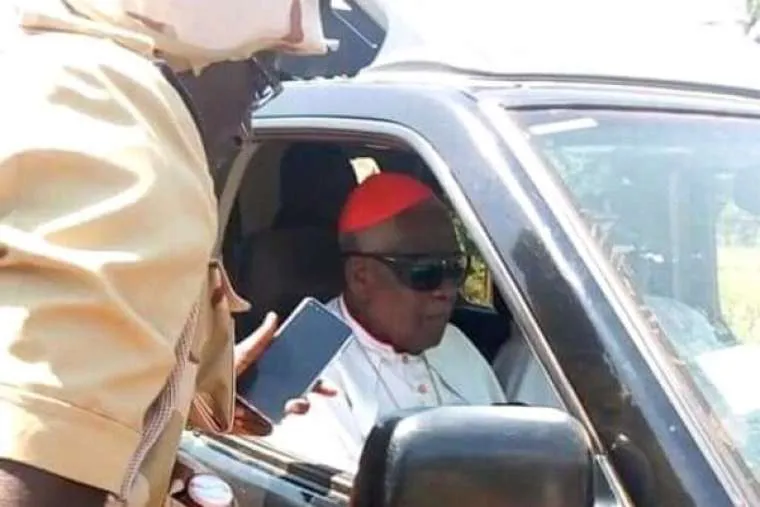Kumbo, 06 November, 2020 / 11:33 pm (ACI Africa).
Christian Cardinal Tumi who was abducted Thursday, November 5 in the troubled North West region of Cameroon has been freed, a Bishop in Cameroon has told journalists Friday, November 6.
“Glory be to God. Cardinal Tumi has been freed by the Separatist fighters. He is fine and in good health,” Bishop George Nkuo of Cameroon’s Kumbo Diocese told journalists shortly after the release of the Archbishop emeritus of Cameroon’s Douala Archdiocese.
The 90-year-old Cardinal was kidnapped November 5 evening (around 6 p.m.) at Baba I, a village along the Bamenda-Kumbo road (North-West region), the leadership of Douala Archdiocese confirmed in a statement shared with ACI Africa.
Twelve other people, including the traditional Chief of the Nso tribe, Fon Sehm Mbinglo II, were also reportedly kidnapped alongside the Cardinal. In Cameroon, traditional rulers of the North West region are addressed by the title Fon.
Accused of clamoring for the resumption of schools so that children can resume learning, the 13 individuals were allegedly kidnapped by a group of armed separatists under the leadership of one, “General Chaomao.”








